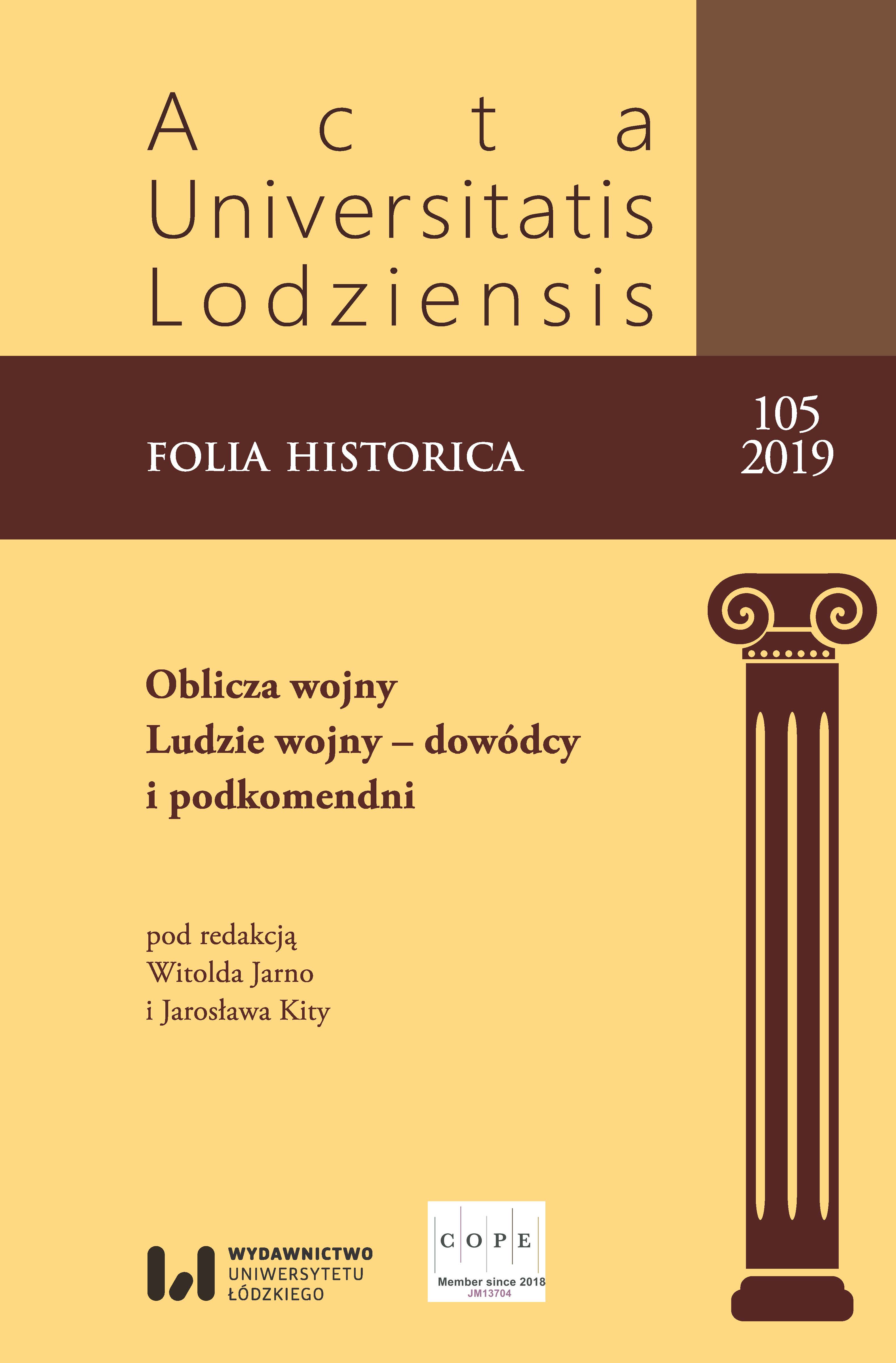Aethelflaeda – kobieta, która broniła Anglię przed wikingami
DOI:
https://doi.org/10.18778/0208-6050.105.02Słowa kluczowe:
Aethelflaeda, Alfred Wielki, Danelaw, Edward Starszy, wikingowieAbstrakt
Aethelflaeda (ok. 870–918) była córką Alfreda Wielkiego, króla Wessexu. Czasy, w których żyła, były dla terenów dzisiejszej Anglii niezwykle ciężkie. Choć w przełomowym roku 878 jej ojciec pokonał jednego ze skandynawskich wodzów Guthruma w bitwie pod Edington i zwycięstwo to przyniosło Anglosasom kilkanaście lat pokoju, to północna i wschodnia część kraju wciąż znajdowała się pod panowaniem wikingów. Artykuł ten ma na celu ukazać przede wszystkim dokonania Aethelflaedy. Bez wątpienia odziedziczyła po ojcu siłę charakteru i determinację, by całkowicie usunąć wikingów z Anglii. Po śmierci męża, ealdormana Mercji Aethelreda sama sprawowała rządy w tym kraju, co z racji płci było w jej czasach czymś wyjątkowym. Wraz z bratem Edwardem Starszym kontynuowała rozpoczętą przez Alfreda fortyfikację miejscowości, m.in. w 917 r. udało jej się odbić z rąk wikingów Derby, jedną z ich głównych baz. Sukcesy Aethelflaedy przerwała, niestety, nagła śmierć w kolejnym roku. Pamięć o jej czynach przetrwała jednak pokolenia.
Pobrania
Bibliografia
Annals of Ireland: Three Fragments, ed. and trans. J. O’Donovan, Dublin 1860.
Google Scholar
English Historical Documents, vol. I (c. 500–1042), ed. D. Whitelock, 2nd ed., London 1979.
Google Scholar
Henry, Archdeacon of Huntingdon, Historia Anglorum: The History of the English People, ed. and trans. D. Greenway, Oxford 1996.
Google Scholar
Smyth A.P., The Medieval Life of King Alfred the Great. A Translation and Commentary on the Text Attributed to Asser, Basingstoke 2002.
Google Scholar
William of Malmesbury’s Chronicle of the Kings of England, ed. and trans. J.A. Giles, London 1847.
Google Scholar
Abels R., Alfred the Great: War, Kingship and Culture in Anglo-Saxon England, London 1998.
Google Scholar
Bailey M., Ælfwynn, Second Lady of the Mercians, [w:] Edward the Elder, 899–924, eds N.J. Higham, D.H. Hill, London 2001, s. 112–127.
Google Scholar
Bandel B., The English Chroniclers’ Attitude Toward Women, „Journal of the History of Ideas” 1955, vol. XVI, No. 1, s. 113–118.
Google Scholar
Charles-Edwards T.M., Wales and Mercia, 613–918, [w:] Mercia. An Anglo-Saxon Kingdom in Europe, eds M.P. Brown, C.A. Farr, London 2001, s. 89–105.
Google Scholar
Gransden A., Historical Writing in England c. 550–c. 1307, London 1974.
Google Scholar
Heighway K., Gloucester and the New Minster of St Oswald, [w:] Edward the Elder, 899–924, eds N.J. Higham, D.H. Hill, London 2001, s. 102–111.
Google Scholar
Irvine S., The Anglo-Saxon Chronicle, [w:] A Companion to Alfred the Great, eds N.G. Discenza, P.E. Szarmach, Leiden 2015, s. 344–367.
Google Scholar
Loyn H.R., Anglo-Saxon England and the Norman Conquest, 2nd ed., Harlow 1991.
Google Scholar
Stafford P., ‘The Annals of Æthelflæd’: Annals, History and Politics in Early Tenth-Century England, [w:] Myth, Rulership, Church and Charters. Essays in Honour of Nicholas Brooks, eds J. Barrow, A. Wareham, Aldershot 2008, s. 101–116.
Google Scholar
Stafford P., Political Women in Mercia, Eighth to Early Tenth Centuries, [w:] Mercia. An Anglo-Saxon Kingdom in Europe, eds M.P. Brown, C.A. Farr, London 2001, s. 35–49.
Google Scholar
Stafford P., The King’s Wife in Wessex 800–1066, „Past and Present” 1981, vol. XCI, s. 3–27.
Google Scholar
Stenton F., Anglo-Saxon England, 3rd ed., Oxford 1971.
Google Scholar
The Oxford Illustrated History of Medieval England, ed. N. Saul, Oxford 1997.
Google Scholar
Wainwright F.T., The Chronology of the ‘Mercian Register’, „The English Historical Review” 1945, vol. LX, No. 238, s. 385–392.
Google Scholar
Pobrania
Opublikowane
Jak cytować
Numer
Dział
Licencja

Utwór dostępny jest na licencji Creative Commons Uznanie autorstwa – Użycie niekomercyjne – Bez utworów zależnych 4.0 Międzynarodowe.










